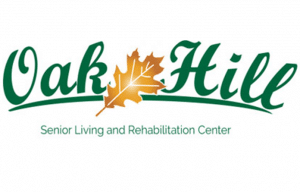Coalition talks teen drinking

Taking a break from regular meetings until the start of the next school year, the Monroe County Coalition for Drug-Free Communities gathered for a Summer Send-Off, looking back on the progress that’s been made in recent months and discussing the problem of teen alcohol consumption.
Columbia School Resource Officer Tyler McWhorter led the meeting with a presentation focused primarily on the problem of teen alcohol use and how to address it.
He noted how big an issue alcohol consumption can be among minors, recalling the tragedy experienced Sept. 1 with the loss of Columbia High School sophomore Crawford Bryant in a crash that resulted in a teen driver ultimately charged with DUI.
McWhorter emphasized some of the warning signs parents can look out for if they think their child might be drinking without their knowledge.
During the school year, parents might keep an eye on major swings in grades, but other big changes in a teen’s behavior could also be a problem sign – though he also acknowledged sometimes changes in behavior are just a part of teenagers growing up.
“Things to look for in the summer here, know your kid’s baseline,” McWhorter said. “If you’re seeing these things increase, secrecy, a complete change in their friends… if you’re seeing changes in your kid’s baseline, that’s a key sign when we’re talking about substance abuse.”
McWhorter also shared a number of quotes he’s heard from parents over the years that demonstrate common misconceptions specifically surrounding the idea of parents allowing minors to drink at home to avoid drinking out with friends.
On the idea of students with strict parents having a higher rate of underage drinking, McWhorter said no study has been conducted that demonstrates this idea, and statistics tend to indicate lower rates of underage drinking among teens whose parents express disapproval toward alcohol abuse.
He also commented on the idea parents might provide alcohol to their child so they might build a tolerance or otherwise learn to drink responsibly.
McWhorter noted that developing brains can more easily fall into addiction. He also pointed out that almost all teens who engage in alcohol consumption with their peers don’t do so as part of recreation but as binge drinking.
“The truth is the younger kids are drinking, the more likely it is that they’re going to have an addiction problem later in life,” McWhorter said. “Kids aren’t just having one drink at a time, either. I have statistics that show they’re binge drinking almost every time they drink, so giving kids a drink to try to educate them is good in theory and it sounds like it would make sense, but when you’re giving them that approval… that approval actually leads to their rates being much higher when they’re not with you.”
McWhorter later emphasized the problem of binge drinking, explaining that he’s heard much about the problem from students who attend parties while not drinking themselves.
“They indicate to me that it’s not about, ‘Hey, we’re gonna have a drink together and have fun,’ It’s about, ‘Who can drink the most the quickest?’” McWhorter said.
He provided a number of statistics and outlined trends pertaining to underage drinking. Per the Illinois Youth Survey last conducted in Monroe County in 2020, 91 percent of eighth graders said they don’t drink while 76 percent of 10th graders and 49 percent of 12th graders said similarly.
Regarding the source of the alcohol, social access seems to be the main way most teens get alcohol, trailed by parents providing it, stealing it from parents and purchasing it through fake IDs and other means.
Folks present for McWhorter’s presentation noted the impact parents providing alcohol can have as the access for their kids can expand to many of their friends and peers having access.
On this subject, McWhorter pointed out Illinois’ social host law, explaining adults can be cited for hosting and providing alcohol to minors. They can also face felony charges if a death results from them providing alcohol.
He also discussed that alcohol can be dangerous for teens in a number of ways. While drunk driving is perhaps the first tragedy that comes to mind, McWhorter also discussed sexual assault taking place among teens drinking heavily.
“There’s a whole bunch of other bad things that can happen to you as the result of drinking and binge drinking,” McWhorter said.
When it comes to ways to address the problem, he placed emphasis on parents setting a good examples and speaking with their kids.
He noted how parents simply making their child aware of their disapproval can have a big impact. While parents should stress they are available to call and help if their child has been drinking, they should also note there will be consequences.
“You guys control how you talk to your kids about alcohol,” McWhorter said. “They need to know that there are gonna be consequences.”
He also spoke about the importance of discussing alcohol and the dangers around it with teens regularly, having conversations as they grow up rather than just once when they’re young.
Sharing statistics about the dangers of underage drinking and working with a teen to prepare a way of turning down alcohol can also make some big differences.
Following McWhorter’s presentation, coalition executive director Monica Kirkpatrick closed out the meeting by discussing various coalition goings-on.
She noted the positive growth of Operation Snowball among county schools as well as plans to host Summer Fun Teen Nights at the YMCA through the summer, the first of which will take place June 20 from 7-9 p.m. with a dive-in movie night at the facility’s pool.
For more information, visit the Monroe County Coalition for Drug-Free Communities Facebook page.






